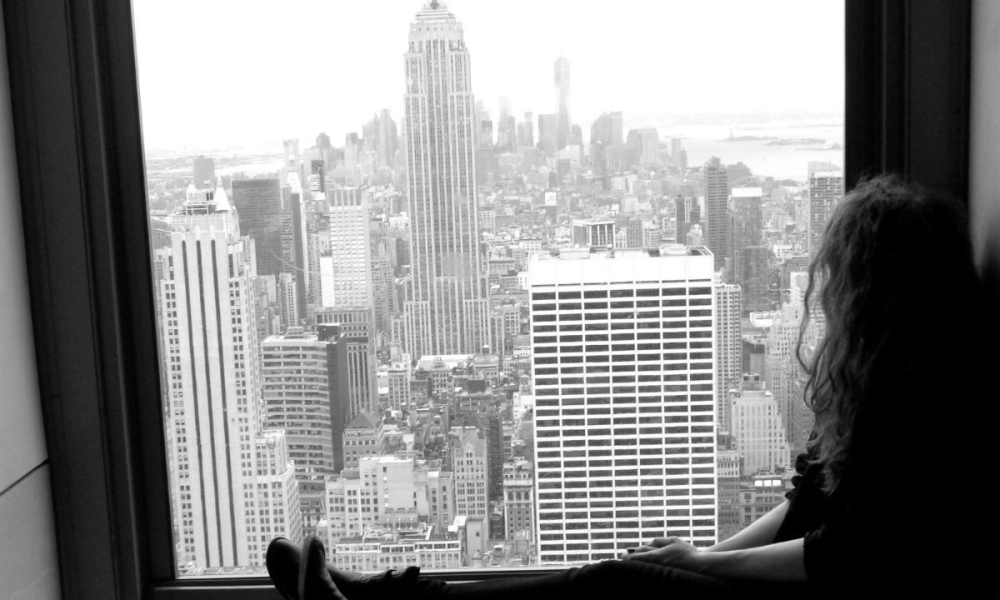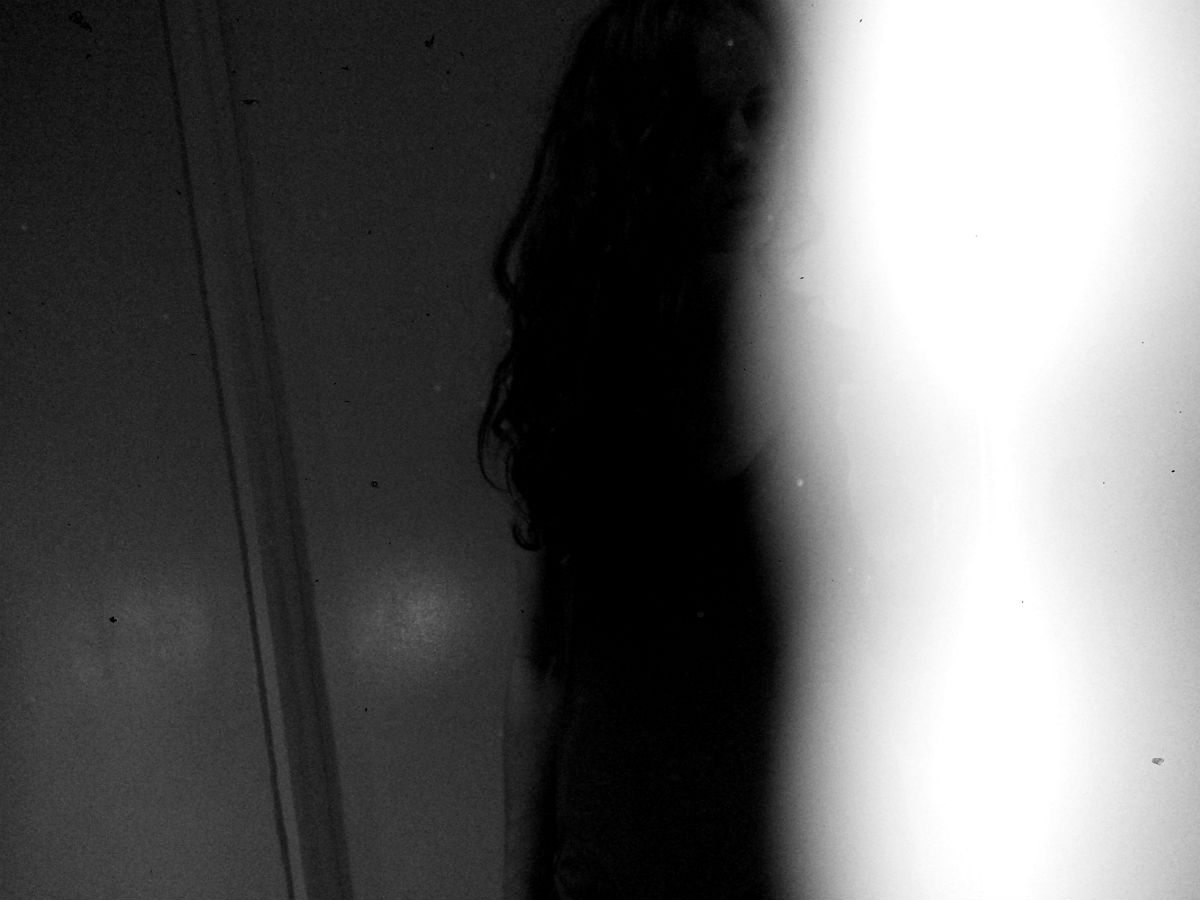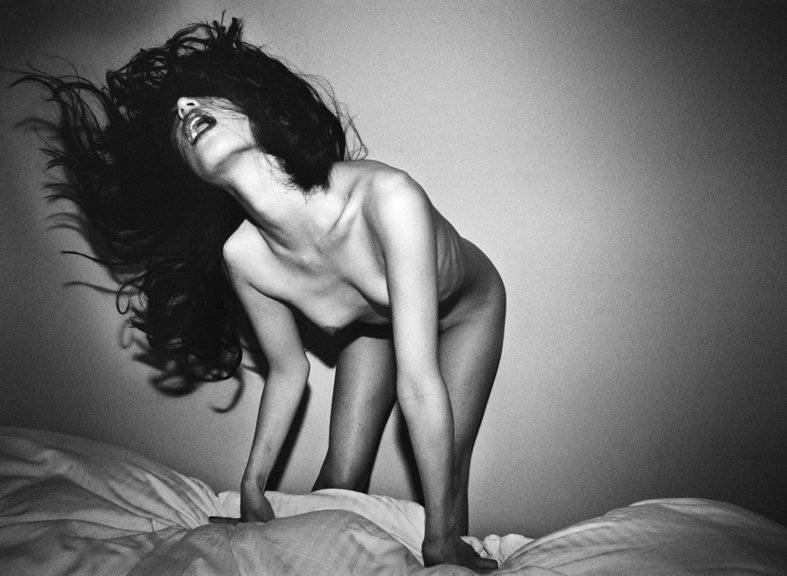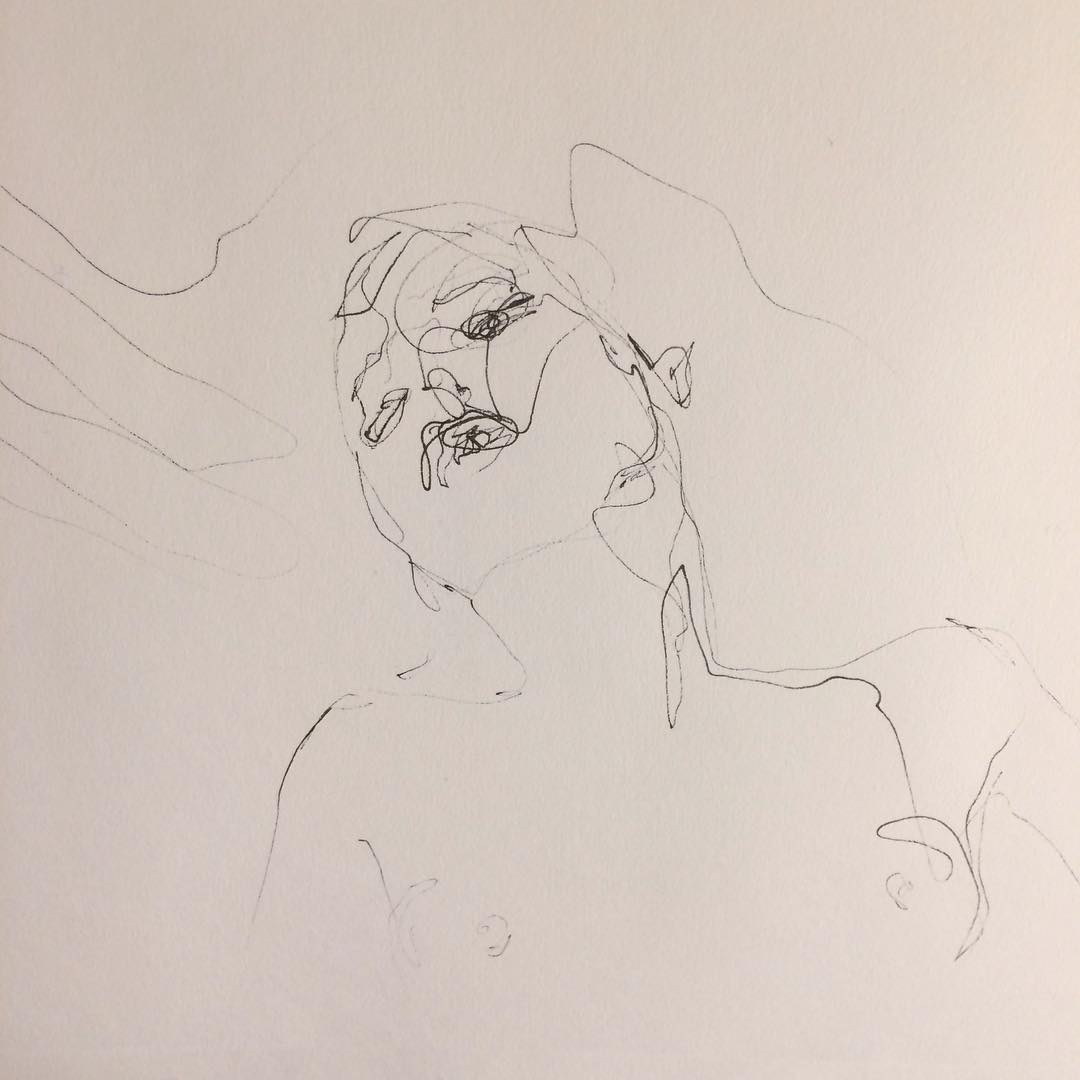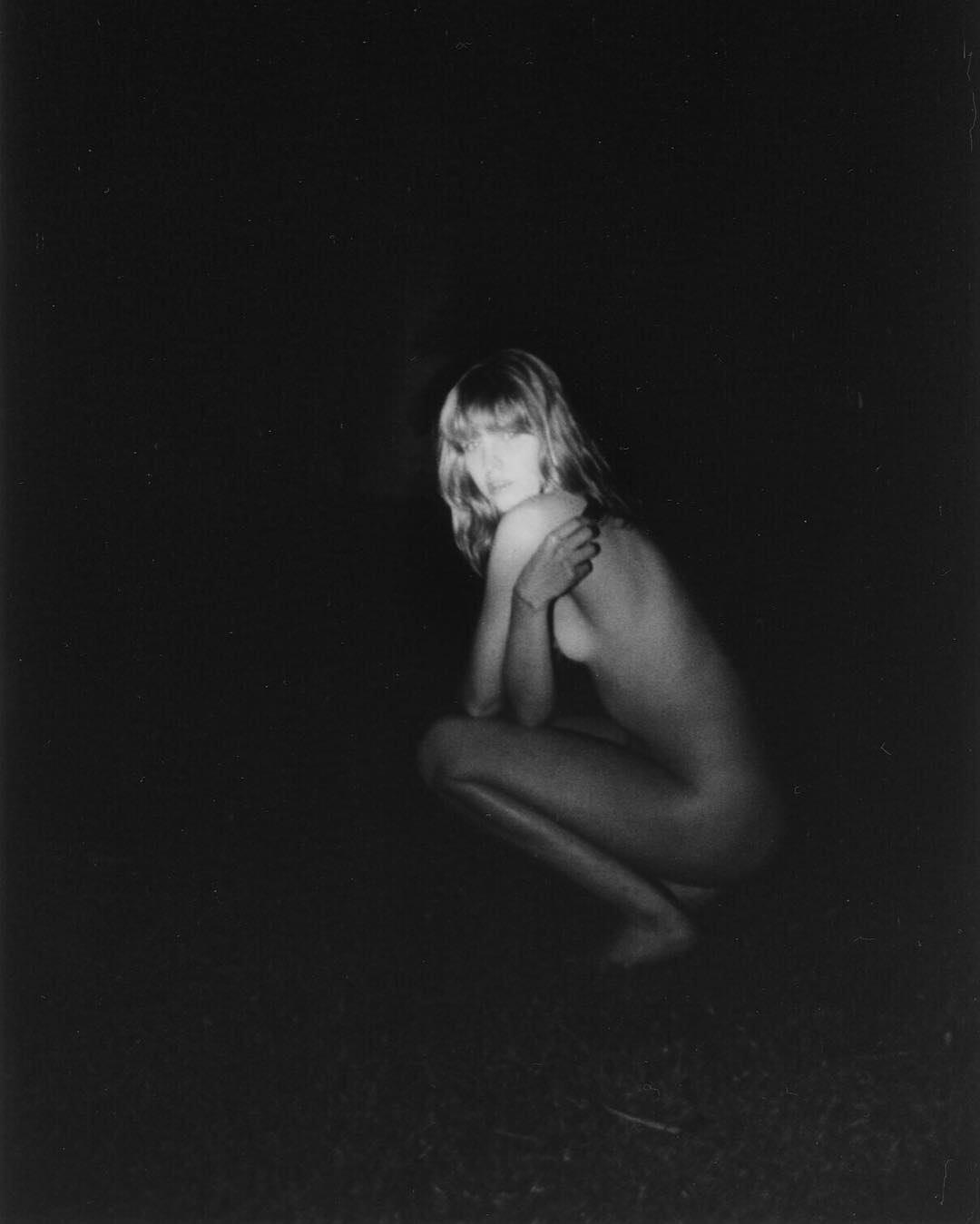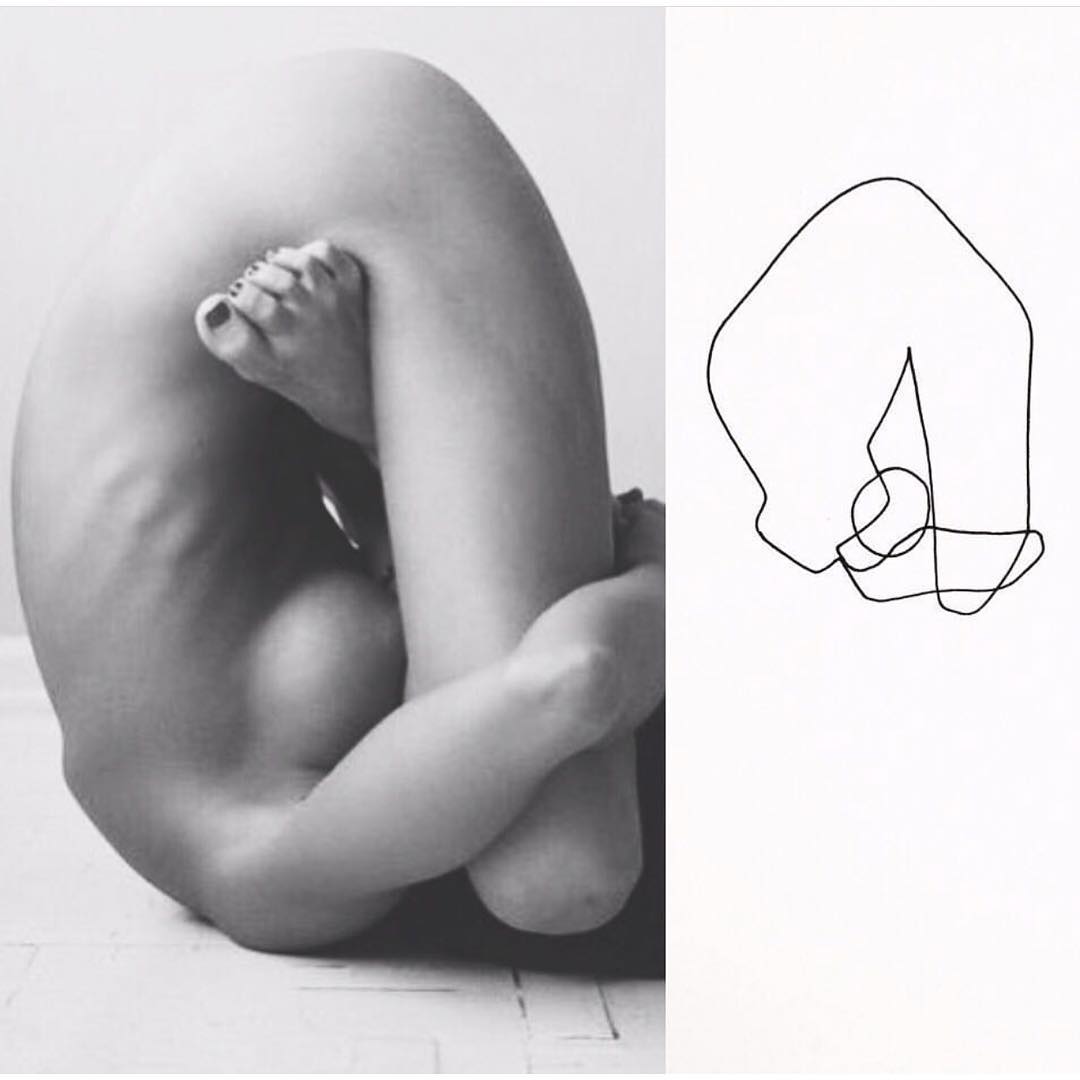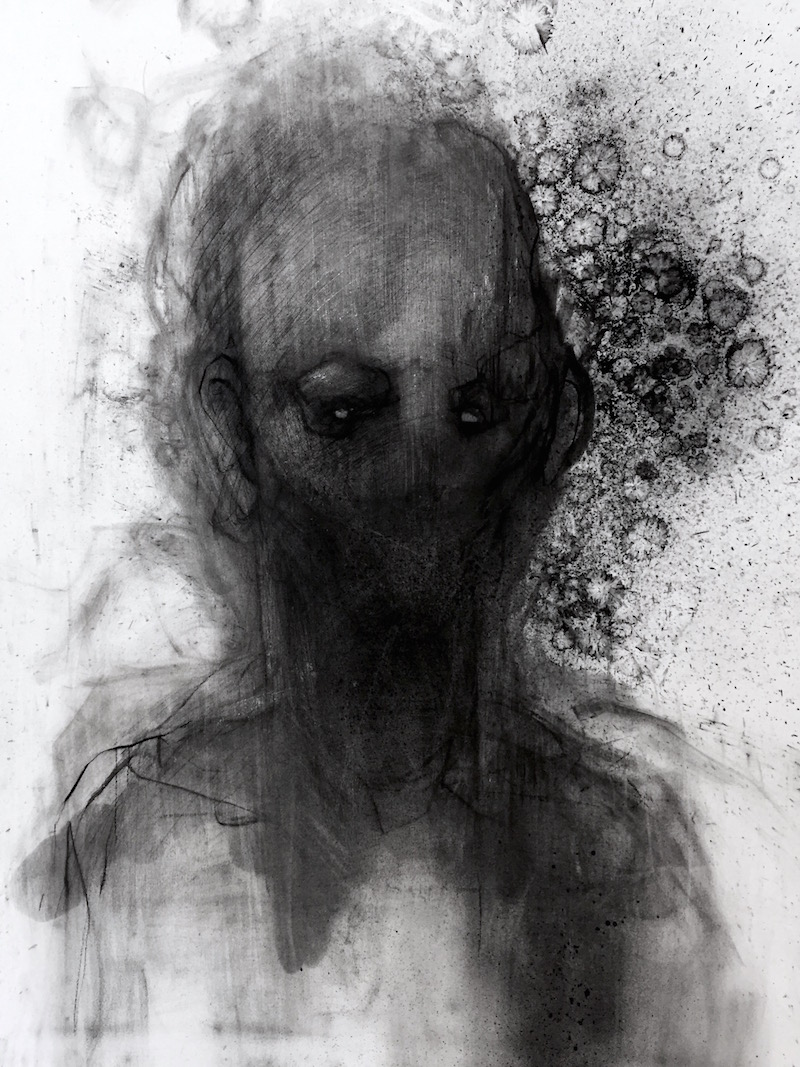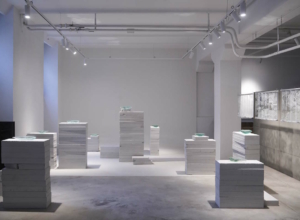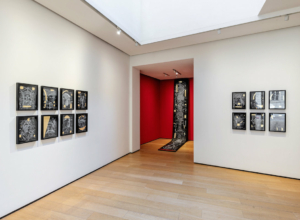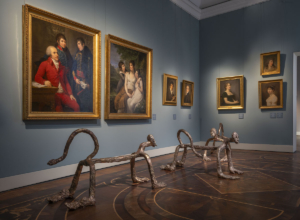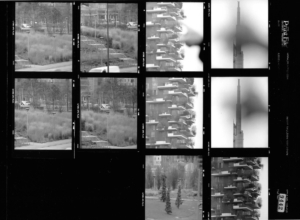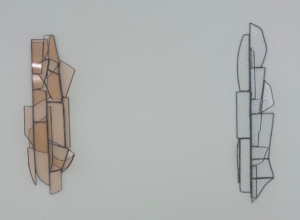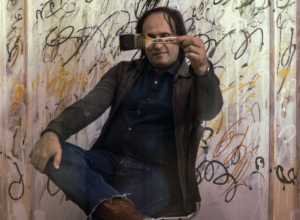Kathryn Carter è una scrittrice specializzata nella creazione di contenuti creativi. La sua scrittura spazia sia in abito creativo che commerciale, pubblica i suoi articoli in riviste cartacee e digitali, attualmente è redattore di servizi speciali per jane. magazine. Un giorno mi sono imbattuta nel suo The Haiku Times e da allora ho sviluppato una sorta di dipendenza per la sua poesia. Se c’è un rifugio per la mia anima qui sulla terra, direi che quello è Kathryn Carter.
Kathryn Carter is a writer who specializes in imaginative content creation. Her writing spans from both creative to commercial, and is published in both print and digital magazines. She is also currently the features editor for jane. magazine. One day I came across her The Haiku Times, and since then I have developed a kind of addiction to his poetry. If there is a refuge for my soul here on earth, I would say that this is Kathryn Carter .
Portrait of Kathryn Carter
Francesca: Viviamo in un’epoca in cui i sogni sembrano essere morti e pare che non ci sia più fiducia nelle utopie. Mi chiedo se la crescente tecnicizzazione non abbia portato a un eccesso di razionalità. Di sicuro, gli esseri umani non possano sopravvivere a lungo senza un ideale e forse l’arte, evocando il sublime, può aiutare a colmare questo vuoto. La figura del poeta oggi è davvero così sorpassata come sembra?
Kathryn: Penso che continuiamo a sognare nella stessa misura in cui lo abbiamo sempre fatto e sempre lo faremo. Ma penso che il perseguimento di quei sogni sia diventato uno sforzo in via di estinzione. Viviamo in una cultura incredibilmente materialista che attribuisce più valore al denaro che si guadagna e ai beni materiali che si possiedono piuttosto che alla bellezza che si vuole condividere con il mondo e all’amore che abita nel cuore. Dedicare la propria vita all’arte è spesso considerata cosa sciocca a meno che non si possa dimostrare che porterà a una ricchezza quantificabile, il che è un’incredibile vergogna e una triste verità che indebolisce la portata della nostra cultura. Nonostante la poesia occupi un posto di secondo piano nell’ambito della cultura contemporanea, penso che abbia ancora un suo ruolo. In un mondo in cui ci viene spesso insegnato a giustificare e razionalizzare tutto ciò che affrontiamo e sperimentiamo – agli altri e anche a noi stessi – la poesia ci dà la libertà di sentire senza bisogno di spiegare. Ci consente, se siamo ben disposti, di immergerci dentro le infinite distrazioni del mondo esterno. Penso che abbiamo ancora bisogno dei suggerimenti dei poeti e penso che sarà sempre così, anche se solo per poter dare uno sguardo a ciò che non è stato mappato o predeterminato.
Francesca: We live in the era in which dreams appear to be dead and we no longer have faith in utopias. I wonder if the increasing technicization has led to an excess of rationality. Relatedly, it seems that human beings can’t survive long without an ideal, and maybe there’s the hope that art that evokes the sublime could help to fill that void. Is today’s poet as outmoded as he or she seems to be?
Kathryn: I think we still dream as wildly as we always have, and we always will. But I think it is the pursuit of those dreams that has become an endangered endeavour. We live in an incredibly materialistic culture, one that places greater value on how much money you earn and how many material possessions you own, and not necessarily on the beauty you want to share with the world and the love that is in your heart. To dedicate one’s life to art is often seen as foolish—unless you can prove that it will lead to quantifiable wealth—which is an incredible shame, and an unfortunate truth that I feel lowers the vibration of our culture. Despite poetry’s lesser-prominence in the fabric of contemporary culture, I think it still has a place. In a world where we’re often taught to justify and rationalize all that we encounter and experience—to others and also to ourselves—poetry liberates us to feel without the need for explanation. It allows us, if we’re willing, to attune to what is within amid the endless distractions of the external realm. I think we still need that prompt from the poet, and I think we always will, if only to be moved in a way that has not been mapped out or predetermined.
Inspiration behind ‘the abyss’—photograph from ‘NAKED’ by © Sarai Mari, courtesy of the artist
Francesca: Secondo Rainer Maria Rilke, il poeta deve privarsi del suo ego. Non deve preoccuparsi di sé stesso, anzi deve liberarsi da sé, evitando così di caricare di aspetti personali il suo lavoro. Concordi con questa definizione? Fai anche tu questo sforzo di auto-abbandono di te stessa quando scrivi?
Kathryn: Alcuni anni fa ho ascoltato il discorso di Jim Carrey alla cerimonia di apertura della Maharishi University in America, durante il quale ha affermato che l’effetto che abbiamo sugli altri è la moneta più preziosa che esista. Tutto ciò che guadagniamo nella vita è destinato a marcire e disgregarsi e tutto ciò che rimarrà di noi è ciò che era nel nostro cuore. Per qualche ragione quelle parole mi hanno profondamente colpita. Non scrivo mai in modo che il mio “io” possa essere visto o sentito, non è questo il punto. Scrivo nella speranza che le mie parole possano offrire un modo alternativo di guardare il mondo, come fossero una lente caleidoscopica del cosmo. Questo non ha mai niente a che fare con “me”, e mi piace così. Non si tratta di scrivere per essere aderente al concetto di sé costruito in funzione dei capricci degli altri. Si tratta di soddisfare il desiderio dell’anima, condividendo con gli altri ciò che veramente agita il proprio spirito. Non per fama, perché la fama non è nulla, ma per condividere qualcosa con il mondo.
Francesca: According to Rainer Maria Rilke, poets need to be completely devoid of ego. They’re not preoccupied with themselves, they’re freed from themselves and refuse personal expression in their work. Do you agree with this definition? Do you strive for self-effacement when you are caught up in your writing?
Kathryn: A few years ago I watched a commencement address delivered by Jim Carrey at Maharishi University in America, during which he stated that the effect you have on others is the most valuable currency there is. Everything you gain in life will rot and fall apart, and all that will be left of you is what was in your heart. For some reason that commencement address resonated with me so strongly. I never write so that my “self” can be seen or heard, that’s not the point. I write in the hope that my words can offer an alternate way of looking at the world, acting kind of like a kaleidoscopic lens of the cosmos. That never has anything to do with “me,” and I like it that way. It’s not about writing to serve the concept of the self that you have built to satisfy the whims of others. It’s about satisfying the yearning of the soul, dedicating yourself to sharing with others what truly excites your spirit. Not for the sake of renown, because fame is nothing, but for the sake of sharing something with the world.
Inspiration behind ‘hollow’—artwork by © Tine Isachsen, courtesy of the artist
Francesca: Fondendo emozione e sintesi nei tuoi scritti, crei una tensione tra il mondo esteriore e quello interiore – intendo l’anima. La forma con cui decidi di esprimerti, l’haiku (una breve poesia composta da parole con un totale di diciassette sillabe, disposte su tre righe – ndr) sembra essere la perfetta incarnazione di questo delicato equilibrio. Come gestisci questa interazione tra intuizione e rappresentazione?
Kathryn: C’è molto più sentimento che pensiero, intuizione quasi al 100%. Sono sempre stata una persona incredibilmente tranquilla e introversa, quindi suppongo che si possa dire che l’haiku è il mio modo per rispondere al mondo intorno a me. Alcune persone sono brave a parlare delle esperienze che hanno avuto; io sono più brava a scriverle. Quindi, sia che derivino da esperienze con amanti o estranei, pitture o sculture, sento che emergono sempre come piccoli frammenti di cose che la mia anima ha l’urgenza dire, con il suo stile senza pretese. Rumi una volta disse: “Eleva le tue parole, non alzare il tono della tua voce. È la pioggia a far crescere i fiori, non i tuoni”. Questa citazione mi ricorda sempre l’haiku. È una forma così delicata di prosa, eppure può anche essere così potente.
Francesca: By fusing emotion and synthesis on your writings, you create a tension between the external world and the inner world – I mean the soul. The form in which you decide to express yourself, the haiku (a short poem consisting of words with a total of seventeen syllables, arranged on three lines – editor’s note), seems to be a perfect incarnation of this delicate balance. How do you manage this interplay between intuition and representation?
Kathryn: A lot more feeling than thinking is involved, it’s almost 100% intuition. I’ve always been an incredibly quiet and introverted person, so I suppose you could say that haikus are my way of responding to the world around me. Some people are good at talking about experiences that they’ve had; I’m better at writing things down. So whether they stem from interactions with lovers or strangers, paintings or sculptures, I feel like they always emerge as tiny fragments of the things my soul is urging to say, in its own unassuming style. Rumi once said: “Raise your words, not voice. It is rain that grows flowers, not thunder.” This quote always reminds me of the haiku. It’s such a gentle form of prose, and yet it can be so powerful, too.
Inspiration behind ‘pour’—photograph of Eduarda Loch for @pmagazine.co by © Nicolau Spadoni, courtesy of the artist
Francesca: L’haiku ha carattere di immediatezza ma, allo stesso tempo, può indurre uno stato di abbandono della coscienza e può suscitare una sorta di stordimento. Condividi questo mio sentire?
Kathryn: Sicuramente. Penso che la bellezza di questo particolare stile di poesia risieda nella sua brevità e nella sua imprevedibilità. Spesso sono necessari solo pochi secondi per scrivere gli haiku, come se a loro bastasse abbandonare il mio subconscio nel momento giusto. Tuttavia, in alte occasioni, le singole parole mi angosciano per giorni, il che è al tempo stesso ridicolo ma molto necessario. Penso che debba sempre esserci un elemento di resa quando si scrivono poesie, ci si lascia commuovere da una forza oscura con la consapevolezza che non potrà mai essere compresa fino in fondo. Una poesia non è un’equazione, non devi immaginarla, la senti solo esistere.
Francesca: Haiku is a medium of immediacy but, at the same time, it can encourage (you) to abandon consciousness and to evoke a desire for dizziness. Does this characterization of Haiku resonate with you?
Kathryn: Definitely. I think the beauty of this particular style of poetry really does lie in its brevity, and its unpredictability. Often haikus only take a few seconds to write, as though they just abandon my subconscious when they feel the time is right. Yet for others I agonize over single words for days, which always feels both ridiculous and very necessary. I think there always needs to be an element of surrender when you’re writing poetry, of letting yourself be moved by an obscure force that you know you’ll never completely understand. A poem is not an equation, you’re not supposed to figure it out, you just feel it into being.
Inspiration behind ‘disruptive calm’—artwork by © Katerina Bak, courtesy of the artist
Francesca: Le immagini degli artisti con cui accompagni le tue poesie sembrano meditazioni su una perduta intimità. Un delicato equilibrio di oscura drammaticità e glamour sofisticato. È come se tu creassi un mondo immaginario assemblato con scene diverse, e lì tu appari con la tua poesia condividendo la fascinazione degli interrogativi sull’amore e sulla vita. Quando è iniziato questo sodalizio con l’arte?
Kathryn: Da piccola trascorrevo un sacco di tempo tra i libri della collezione d’arte di mia madre guardando in particolare i ballerini dipinti da Edgar Degas. Immagino sia stato quello l’inizio e dubito che ci sarà mai una fine. Non penso che si possa deliberatamente decidere di amare l’arte; è un desiderio che giace nel profondo di noi. L’arte, a prescindere dalla sua forma, nasce da un dolore incurabile e serve ad esprimere il proprio mondo interiore. Per l’artista, e per coloro che si sentono a proprio agio dentro i confini transitori del mondo dell’arte, è e sarà sempre profondamente necessario.
Francesca: The images of the artists with which you accompany your poems sound like meditations on lost intimacy. They are delicately balanced by dark drama and sophisticated glamour. It’s like you create a fictional world made by “assemblage” scenes, and there you appear with your poetry sharing your fascination with questioning love and life. When did you start to connect with art?
Kathryn: As a little girl I spent a lot of quality time with my mother’s collection of artbooks, in particular one she had on the ballet dancers painted by Edgar Degas. I guess that was the beginning, and I doubt there will ever be an end. I don’t think you ever consciously decide to become involved with art; it’s a longing that lies deep within you. Art, no matter what form it takes, is born from an incurable ache to express your inner world. To the artist, and to those who feel most at ease within the transient parameters of the artistic realm, it is and always will be deeply necessary.
Inspiration behind ‘gentle despair’—painting 'Entangled' by © Schalk van der Merwe, courtesy of the artist
Francesca: La mia ultima domanda: quale consiglio daresti a un giovane scrittore/poeta emergente?
Kathryn: Non permettere mai a nessuno di allontanarti dalla tua strada, sebbene sia quella meno battuta, indipendentemente da chi esso sia. Insegui inesorabilmente ciò che ami, anche quando ti senti spaventato. E sii paziente con te stesso, serve tempo per diventare chi già sei.
Francesca: My final question: what would your advice be to a young emerging writer/poet?
Kathryn: Never let anyone tear your eyes away from your road less travelled by, no matter who they are. Pursuit what you love relentlessly, even when you feel afraid. And be patient with yourself, it takes time to become who you already are.
Cover story: a portrait of Kathryn Carter
I have no words to express my gratitude to Kathryn Carter for this interview. Don’t miss the opportunity to discover her work: web site – The Haiku Times – Instagram


